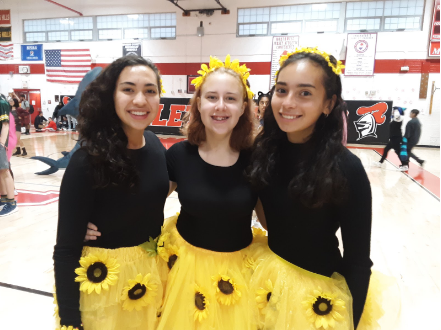Halloween & Cultural Appropriation
Every year, millions of children, teenagers, and even adults look forward to Halloween, dressing up in costumes that range anywhere from crazily vibrant to terrifyingly scary. The holiday is well-known for being both spooky and fun, and with all of the trick-or-treating, costume shopping, and haunted houses, it’s no wonder so many people love October 31st. However, along with being well-known for all the fun and games, Halloween is also infamous for the controversies it ignites every year, specifically regarding culturally appropriative costumes.
Cultural appropriation, according to the Oxford Dictionary, is defined as “the unacknowledged or inappropriate adoption of the customs, practices, ideas, etc. of one people or society by members of another and typically more dominant people or society.” In other words, it is the practice of taking or using elements of another culture, without necessarily demonstrating respect for the culture in its entirety. Take the “Native American Princess” costume for instance, which is sold in department stores and Halloween shops around the United States. Not only are the wearers and creators of this costume disrespecting Native American culture, but they are also reducing the Native American people as a whole to a Halloween costume that embodies racist and harmful stereotypes. The implications of the existence of such a costume are made worse when one realizes the long history of oppression that Native Americans have faced in this country, as well as the inequality they are still experiencing today. While the wearers of this “Native American” costume can simply take it off when they want to, the Native American people must live with these injustices everyday.
Of course, cultural appropriation exists outside of Halloween as well, and it is important to recognize this fact and acknowledge that the problem extends beyond just one day on our calendars. Recently, the Huffington Post reported about famous American singer Katy Perry receiving backlash for her performance at the American Music Awards, in which she dressed in a geisha-inspired costume and was called out for appropriating Japanese culture. Additionally, racist names and mascots derived from Native American culture have been a topic of debate for several years now, with multiple famous sports teams like the Washington Redskins refusing to change despite years of protest from indigenous peoples. Cultural appropriation is also rampant in fashion, which can be seen from the multiple scandals endured by many high-end companies such as Gucci, which came under fire for its 2016 fashion show depicting white models wearing traditional Sikh turbans.
While it is disappointing that cultural appropriation is still rampant, we can start to address the problem of offensive costumes by first focusing on ourselves individually. What better way to start than at our local Halloween stores this year? By being actively conscious of offensive costumes and avoiding companies that profit off of cultural appropriation, we can all do our part this October to make Halloween a holiday that is fun for everyone and every culture – not just a few.


